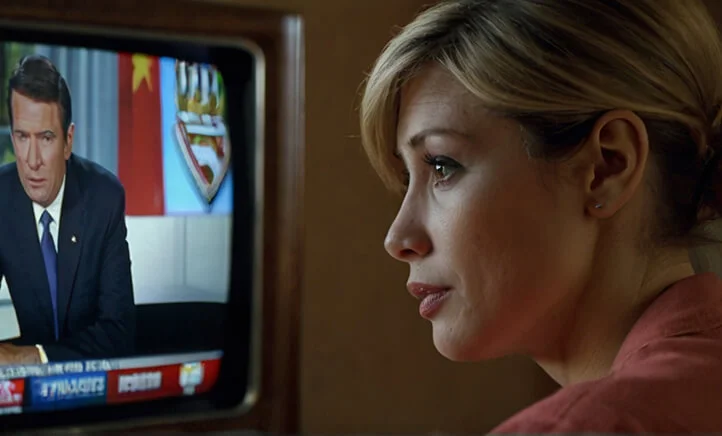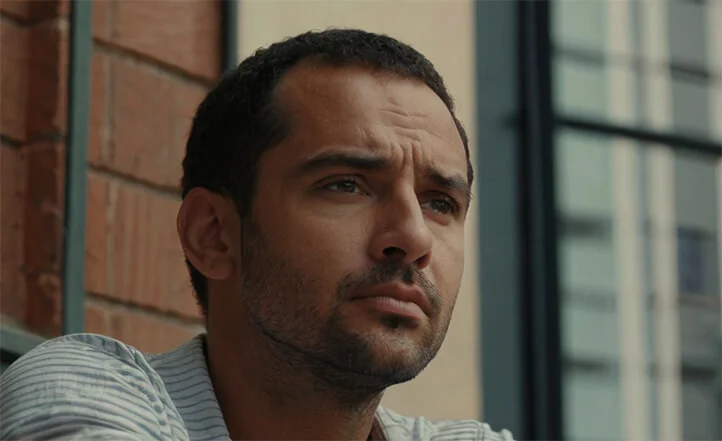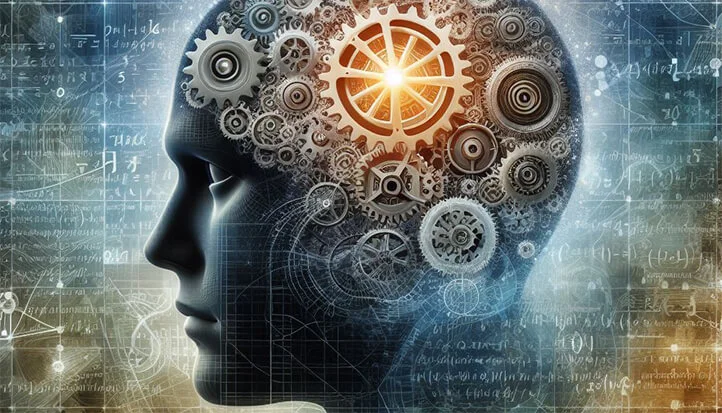In an era of information abundance and the growing flow of contradictory data, technologies for developing critical thinking have become some of the most sought-after tools for shaping 21st-century cognitive skills. The ability to analyze information, identify logical connections, ask questions, and draw well-founded conclusions helps navigate the modern world and make informed decisions.

Definition of Critical Thinking
Critical thinking is the process of purposeful analysis, evaluation, interpretation, synthesis, and summarization of information to derive well-founded conclusions and make effective decisions. It includes:
- The ability to ask questions and verify the reliability of information sources. A critically thinking person does not take statements at face value but strives to assess their justification and the reliability of sources.
- The skill to identify logical errors, contradictions, and gaps in arguments. Critical thinking involves a careful analysis of the logic of reasoning and detecting possible flaws or overlooked aspects.
- Openness to alternative viewpoints and a willingness to change one’s opinion. A critically thinking person considers different perspectives and is ready to revise their beliefs when new facts or stronger arguments emerge.
- Using logical reasoning and evidence to substantiate conclusions. Critical thinking relies on strict logic, factual data, and evidence rather than biases or unsubstantiated claims.
- Formulating independent and well-argued judgments. The ultimate goal of critical thinking is to form one’s own balanced opinion on the matter based on the analysis conducted.
The Importance of Developing Critical Thinking in the Modern World
In the age of information overload and the spread of “fake news,” critical thinking becomes an essential skill for successfully navigating the complex information landscape. It helps to:
- Distinguish reliable facts from unfounded claims. Critical thinking enables the evaluation of the reliability of information sources and the detection of possible manipulations or distortions of facts.
- Recognize manipulative techniques and propaganda. Through a critical approach, one can uncover hidden motives and tricks used to influence public opinion.
- Make informed decisions based on facts. Critical thinking promotes decision-making based on objective analysis of the situation and available data, rather than emotions or biases.
- Form independent and well-argued opinions. Developed critical thinking allows forming one’s own stance on various issues, relying on logical arguments and evidence.
- Interact effectively with diverse information. In the context of information abundance, critical thinking helps filter out unnecessary details, highlight the main points, and analyze information from various sources.
Thus, developing critical thinking is a key condition for successfully adapting to the challenges of modern society, making informed decisions, and shaping an independent worldview.

Core Critical Thinking Skills
Critical thinking encompasses a number of interrelated skills that need to be developed comprehensively. These include:
Analysis and Evaluation of Information
One of the key aspects of critical thinking is the ability to carefully analyze and evaluate information from various sources. This includes:
- Identifying key ideas and arguments. A critically thinking person can highlight the main thoughts and reasoning presented in a text, speech, or other sources of information.
- Distinguishing between facts, opinions, and assumptions. It is important to separate objective facts from subjective opinions or hypotheses that are not supported by evidence.
- Assessing the credibility and authority of sources. One should critically evaluate information sources and check their reliability, reputation, and potential biases or conflicts of interest.
- Recognizing logical errors and contradictions. Critical thinking involves identifying logical inconsistencies, reasoning errors, contradictory statements, and other flaws in arguments.
- Detecting hidden premises and biases. It is essential to recognize implicit assumptions, prejudices, or biases that may affect the objectivity of information or judgments.
Developing these skills allows for a critical evaluation of information, separating facts from opinions, and avoiding the influence of unsubstantiated claims or manipulative tactics.
Questioning Approach
One of the hallmarks of critical thinking is the constant pursuit of asking questions and problematizing information. This includes:
- Asking clarifying and probing questions. A critically thinking person does not accept statements at face value but asks questions to clarify details, uncover gaps, or identify contradictions.
- Challenging commonly accepted ideas. Critical thinking implies a willingness to reconsider established views and beliefs if they are not backed by sufficient evidence.
- Identifying gaps in information and argumentation. It is important to recognize which aspects of the issue remain unaddressed or insufficiently argued.
- Seeking alternative viewpoints and interpretations. Critical thinking requires considering different perspectives and approaches to a problem rather than being confined to a single view.
Constant questioning and problematizing of information enable deeper insight into the issue, uncover hidden assumptions, and form a more complete and objective understanding of the situation.
Openness to Different Perspectives
Another important aspect of critical thinking is openness to different viewpoints and the willingness to consider alternative approaches. This includes:
- Willingness to consider diverse opinions and approaches. A critically thinking person understands the limitations of a single perspective and seeks to explore various views on the issue.
- Overcoming biases and stereotypes. One must be aware of and overcome their own biased beliefs, which may affect the objectivity of perception.
- The ability to understand context and consider various factors. Critical thinking requires considering the issue in a broad context, taking into account different aspects and factors influencing the situation.
- Acknowledging the complexity and multifaceted nature of problems. Many modern issues are complex and multi-dimensional, so it is important to avoid oversimplified solutions and one-sided approaches.
Openness to alternative perspectives allows for a deeper and more comprehensive understanding of the issue, avoiding narrow thinking and making informed decisions that take into account diverse viewpoints.
Logical Reasoning
Critical thinking relies on strict logic and the ability to construct well-founded arguments. This includes:
- The ability to build logical connections and justifications. A critically thinking person should be able to coherently express their thoughts, identify cause-and-effect relationships, and support statements with appropriate arguments.
- Using inductive and deductive reasoning. Inductive reasoning moves from specific examples and observations to general conclusions and patterns. Deductive reasoning, on the other hand, starts with general statements or principles and derives more specific, concrete outcomes from them.
- The ability to identify cause-and-effect relationships. It is important to analyze events or phenomena, determine their causes, and assess their potential consequences.
- Formulating well-reasoned conclusions and findings. The ultimate goal of critical thinking is to formulate logically sound and well-argued conclusions based on the analysis conducted.
Developing logical reasoning skills allows one to build coherent arguments, identify logical errors and contradictions, and arrive at well-founded conclusions.
Independence of Judgment
Another crucial component of critical thinking is the ability to form independent and autonomous judgments. This includes:
- Critically evaluating different points of view. One must be able to analyze and compare various opinions, identifying their strengths and weaknesses, rather than accepting them at face value.
- Forming an independent and well-argued opinion. After thoroughly analyzing the issue and considering various approaches, a critically thinking person should form their own well-founded position.
- Willingness to revise one’s beliefs when new facts emerge. Critical thinking involves flexibility and openness to changing opinions if new compelling evidence or arguments arise.
- Making decisions based on one’s own analysis and reflection. Final decisions should be based not on others’ opinions or emotions, but on the results of personal critical analysis of the situation.
Independence of judgment allows for the formation of an autonomous and balanced position, avoiding biases or manipulations, and making well-reasoned decisions based on one’s own critical analysis.
Developing these skills collectively allows for the cultivation of critical thinking and enhances the analytical abilities necessary for effectively navigating modern society and cultivating an independent worldview.

Technologies for Developing Critical Thinking
There are several technologies and methods that contribute to the development of critical thinking. Their systematic application in the learning process and everyday life helps to improve skills in analyzing, evaluating information, reasoning logically, and forming independent judgments.
Active Reading and Text Analysis
One of the most effective technologies for developing critical thinking is active reading and text analysis. This involves attentive and thoughtful study of material, rather than passive reading. The process of active reading includes:
- Identifying key ideas and arguments. When reading, it is important to determine the main thoughts and core arguments presented in the text.
- Evaluating the credibility and logic of statements. One should critically assess the facts, data, and assertions provided, checking their validity and consistency.
- Detecting bias and logical fallacies. It is crucial to recognize potential biases of the author, logical errors, gaps in reasoning, or contradictory statements.
- Formulating personal questions and counterarguments. During reading, it is useful to ask questions, highlight unclear points, and formulate counterarguments to the expressed ideas.
Example: Analytical Reading of an Article
- Read the text carefully, highlighting the main theses and arguments. Identify the key ideas the author seeks to convey and the justifications provided to support them.
- Assess the reliability and authority of the information sources. Check how reliable and authoritative the sources cited by the author are, and whether they have potential biases or conflicts of interest.
- Identify possible logical errors, contradictions, or omitted factors. Carefully study the author’s reasoning, track the logic of their argumentation, and note any contradictions, unsubstantiated claims, or overlooked important aspects of the issue.
- Formulate your own questions and counterarguments to the expressed ideas. Ask critical questions, identify weak points in the argumentation, and formulate alternative perspectives or possible counterarguments.
- Draw well-founded conclusions based on the analysis conducted. After thoroughly studying the text and critically assessing all aspects, formulate your conclusions, based on factual data, logic, and personal analysis.
Regular practice of active reading and text analytics enhances critical thinking skills, such as identifying key ideas, evaluating the credibility of information, detecting logical errors, and forming independent judgments.
Discussions and Debates
Participating in discussions and debates on current and controversial issues is another effective technology for developing critical thinking. This method involves:
- Discussing controversial issues and problems. Topics are chosen that have multiple viewpoints and approaches, which stimulates critical analysis and reasoned discussion.
- Presenting and defending different points of view. Participants in discussions or debates must explore various positions on the issue and prepare convincing arguments to support them.
- Putting forth arguments and counterarguments. During the discussion, participants present justifications for their stance and critically analyze their opponents’ arguments, offering counterarguments.
- Analyzing the logic and soundness of expressed ideas. It is important to carefully follow the logic of the reasoning, identifying possible errors or contradictions in the participants’ argumentation.
- Formulating well-reasoned conclusions. At the end of the discussion or debate, participants should draw conclusions based on the arguments and counterarguments considered.
Discussions and debates develop such critical thinking skills as the ability to argue one’s position, analyze different viewpoints, present counterarguments, evaluate reasoning logic, and formulate well-reasoned conclusions.
Problem-Solving
Problem-solving is another technology for developing critical thinking. This method involves working with real or hypothetical complex situations that require analysis and decision-making. The process of solving problem situations includes the following stages:
- Analyzing complex real-life problem situations. Specific cases are considered that contain contradictions, uncertainties, or difficult-to-resolve issues.
- Identifying key factors and hidden assumptions. It is necessary to highlight the main aspects of the problem, consider various factors influencing the situation, and recognize possible hidden assumptions or biases.
- Generating alternative solutions. At this stage, several possible solutions to the problem should be proposed, considering it from different perspectives.
- Evaluating the advantages and disadvantages of each option. Each potential solution must be critically analyzed to identify its strengths and weaknesses, risks, and consequences.
- Making a well-reasoned decision based on analysis. After thoroughly evaluating all options, the most optimal solution to the problem should be chosen, relying on a critical analysis of the situation and well-considered arguments.
Problem-solving fosters critical thinking skills such as identifying key factors, considering different perspectives, generating alternative solutions, evaluating risks and consequences, and making well-reasoned decisions.
Writing Essays and Analytical Papers
The process of writing essays, analytical papers, and research projects is also an effective technology for developing critical thinking. This process includes the following stages:
- Formulating a clear position on the given topic. It is necessary to formulate the main thesis or idea that you plan to defend and substantiate in your work.
- Collecting and analyzing relevant information from various sources. Research should be conducted, facts, data, and opinions from reliable and authoritative sources should be gathered, and critically evaluated.
- Building a logical argument. Based on the collected information, a coherent argument supporting your position should be constructed, using logical connections and justifications.
- Considering alternative viewpoints and counterarguments. It is important to examine alternative approaches to the issue and possible counterarguments, analyzing their strengths and weaknesses.
- Formulating well-reasoned conclusions. In the concluding part of the work, clear and well-argued conclusions should be drawn based on the analysis and reasoning conducted.
Using Thinking Visualization Technologies
The use of various thinking visualization technologies also promotes the development of critical thinking. These technologies include:
- Creating mind maps and diagrams. Visually representing ideas, concepts, and their interrelationships in the form of mind maps or diagrams helps to structure information and identify logical connections.
- Visualizing relationships and interdependencies. Graphically displaying various factors affecting a situation and their interrelationships facilitates a better understanding of the problem and reveals hidden aspects.
- Structuring information for better understanding. Visualization helps to organize and systematize scattered data, ideas, or arguments, making them easier to perceive and analyze.
- Identifying relationships and hidden patterns. When information is visually represented, invisible relationships, contradictions, or gaps may emerge, which should be considered when making decisions.
- Facilitating the decision-making process. Visualizing different solution options, their pros and cons, simplifies the process of comparison and choosing the most optimal option.
Using thinking visualization technologies promotes the development of critical thinking by facilitating the perception and analysis of complex information, identifying relationships and hidden factors, and making well-reasoned decisions.
Regular application of these technologies in the learning process and everyday life helps to improve critical thinking skills such as information analysis, recognizing logical errors, and forming independent judgments.

Advantages of Critical Thinking
The development of critical thinking offers numerous benefits in various aspects of life, contributing to more effective problem-solving, improved academic and professional performance, and the formation of an independent worldview. Let’s explore the main advantages of critical thinking in more detail.
Improvement in Academic Performance
Critical thinking is a key factor in achieving high academic results. It contributes to:
- Deeper understanding of the material. A critical approach to studying subjects allows not only the memorization of information but also a better understanding of its essence, identifying connections, and drawing well-founded conclusions.
- Ability to critically evaluate information from various sources. The skill to analyze and compare data from different sources, determining their reliability and authority, helps in preparing for classes and writing research papers.
- Formation of an independent and reasoned approach to assignments. Critical thinking enables students to formulate well-reasoned judgments on studied topics independently, rather than merely repeating others’ opinions.
- Improvement in the quality of written work and research. Skills in analyzing information, building logical arguments, and drawing balanced conclusions contribute to enhancing the quality of academic papers, essays, and other written assignments.
Thus, developed critical thinking helps students achieve a deeper understanding of the study material, analyze information from various sources, form independent positions, and improve the quality of academic tasks.
Increased Decision-Making Efficiency
In today’s world, where we face complex situations and problems daily, critical thinking is an essential skill for making effective and well-founded decisions. It offers the following advantages:
- Comprehensive analysis of the situation and consideration of various factors. Critical thinking allows for examining a problem from different perspectives, identifying all influencing factors, and not missing important details.
- Identification of hidden assumptions and potential risks. Through critical analysis, it is possible to recognize implicit assumptions, biases, or possible risks that need to be considered when making decisions.
- Generation of alternative solutions. Critical thinking encourages the search for unconventional approaches and the exploration of different ways to solve a problem.
- Making well-balanced and reasoned decisions. Ultimately, critical thinking helps make decisions based on an objective analysis of the situation, evaluating risks and benefits of different options, rather than on emotions or unfounded assumptions.
Development of Communication Skills
Critical thinking also fosters the development of communication skills necessary for effective interaction with others. It offers the following advantages:
- The ability to clearly formulate and argue your position. Critical thinking helps articulate thoughts clearly, supporting them with logical arguments and factual data.
- The ability to listen and analyze different points of view. A critically thinking person is open to considering alternative opinions, analyzing their validity, and acknowledging different perspectives.
- Engaging in constructive discussions and debates. Critical thinking skills, such as the ability to argue one’s position, present counterarguments, and formulate balanced conclusions, contribute to productive discussions and debates.
- Effective conflict and contradiction resolution. A critical approach helps find optimal ways to resolve conflicts and contradictions by considering the problem from different angles and making balanced decisions acceptable to all parties.
Thus, the development of critical thinking enhances communication quality and fosters more effective interaction with others, both in the professional realm and in everyday life.
Formation of Independent Thinking
One of the key advantages of critical thinking is that it promotes the formation of independent and self-sufficient thinking. This manifests in the following aspects:
- Critical evaluation of information and avoidance of manipulation. A critically thinking person does not take statements at face value but strives to verify their accuracy and identify potential manipulations or distortions of facts.
- Overcoming biases and stereotypes. Critical thinking helps recognize and overcome personal biases and stereotypes that can limit perception and understanding of a situation.
- Formation of one’s own well-founded opinion. Through critical analysis of information and various points of view, a person can form an independent and reasoned position on different issues.
- The ability to resist group pressure. A critically thinking person is not inclined to uncritically accept the majority’s opinion if it is not supported by strong arguments and is ready to defend their well-founded viewpoint.
Independent thinking enables individuals to avoid the influence of propaganda, manipulations, and unfounded claims, allowing them to form their own worldview based on facts and logical reasoning rather than prejudices or group pressure.
Thus, critical thinking provides numerous advantages in various areas of life, contributing to increased academic and professional efficiency, the making of well-founded decisions, the development of communication skills, and the formation of an independent worldview.

Application of Critical Thinking in Various Areas of Life
Critical thinking is a universal skill that can be applied in a wide range of areas of life. Let’s take a closer look at where it can be most beneficial.
Education
In the field of education, critical thinking plays a key role in achieving success. It helps to:
- Better understand educational material. A critical approach allows not just memorizing information but analyzing and interpreting it, establishing connections, and drawing well-founded conclusions.
- Develop independent learning skills. The ability to critically evaluate sources of information, ask questions, and form independent judgments contributes to more effective self-education.
- Improve the quality of research work. Critical thinking provides essential skills for conducting quality research, such as data collection and analysis, hypothesis generation, building sound arguments, and formulating conclusions.
- Prepare students for future professional activities. Developing critical thinking helps students acquire the skills necessary for a successful career, such as the ability to make effective decisions, analyze problems, and propose well-reasoned solutions.
Implementing technologies for developing critical thinking in the educational process enhances the quality of learning and prepares more qualified and competitive specialists.
Career and Business
In professional and business spheres, critical thinking is one of the most in-demand skills. It provides the following benefits:
- Improving decision-making efficiency. The ability to view situations from different angles, identify potential risks, and consider alternative scenarios allows for more well-grounded and effective decisions.
- Enhancing analytical capabilities. Critical thinking helps to better understand complex problems, identify key factors and trends, which is particularly important in analytical work.
- Expanding the innovation arsenal. The ability to ask questions, challenge existing approaches, and generate non-standard ideas fosters innovation and creativity.
- Improving presentation and persuasion skills. The ability to clearly formulate arguments, anticipate counterarguments, and convincingly defend one’s position is a valuable quality for effective communication and presenting ideas.
- Enhancing leadership qualities. Critical thinking helps leaders make well-founded decisions, consider different perspectives, and effectively resolve conflicts.
Developing critical thinking in the professional sphere boosts productivity, innovation, and competitiveness in organizations while contributing to individual career growth.
Personal Life and Interpersonal Relationships
Critical thinking also finds application in personal life and interpersonal relationships. It helps to:
- Make informed decisions in personal life. The ability to critically analyze situations, consider different options, and assess their consequences contributes to more balanced decisions in areas like career, finances, health, and other aspects of personal life.
- Avoid manipulation and biases. Critical thinking allows recognizing manipulative tactics and toxic relationships, overcoming stereotypes and prejudices, thus forming a more objective view of the world.
- Resolve conflicts and improve mutual understanding. The ability to listen to and analyze different viewpoints, find compromises, and make balanced decisions leads to more effective conflict resolution and improved understanding in interpersonal relationships.
- Develop emotional intelligence. Critical thinking helps to better understand one’s own emotions and those of others and find constructive ways to express and regulate them.
Applying critical thinking skills in personal life and relationships contributes to more balanced decisions, overcoming biases, improving communication, and enhancing the overall quality of life.
Civic Engagement and Public Life
Critical thinking plays an important role in shaping active civic engagement and participation in public life. It ensures:
- Critical evaluation of information from various sources. The ability to analyze and compare information from different sources, assess the credibility of facts, and recognize manipulation or propaganda is crucial for forming an objective opinion on public issues.
- Conscious participation in political processes. Critical thinking helps make informed and well-grounded decisions when choosing political candidates, voting on important issues, or participating in public discussions.
- Active civic engagement. Developed critical thinking fosters the formation of an independent and well-argued civic position, readiness to defend one’s rights and interests, and participate in public movements and initiatives.
- Countering extremism and radicalization. A critical approach helps to recognize and oppose extremist ideas, propaganda, and attempts at manipulating public consciousness.
Thus, critical thinking is an important tool for creating an informed, active, and responsible civil society capable of making sound decisions and resisting manipulation and propaganda.
Overall, critical thinking is a universal skill that finds application in many areas of life, from education and career to personal relationships and civic engagement. Developing this skill promotes independent thinking, improves communication, and enhances the overall quality of life.

Conclusion
Critical thinking is a key skill of the 21st century, essential for successfully adapting to the challenges of the modern world and making well-considered decisions. Developing this skill requires systematic efforts and the use of specific methods.
In conclusion, there is a strong need to actively implement critical thinking development techniques in the educational process, starting from the early stages of learning. This will help prepare educated, thoughtful, and responsible citizens who can resist manipulation and form independent worldviews.
Moreover, it is important to continuously develop critical thinking throughout life, as it is an effective tool for personal growth and self-improvement. This skill must be constantly honed and applied in practice to solve complex problems in various areas of activity.
Recommended Literature
- “Critical Thinking: Tools for Taking Charge of Your Learning and Your Life” by Richard Paul and Linda Elder. This book offers a set of tools and techniques for developing critical thinking as a key element of successful learning and life.
- “Thinking, Fast and Slow” by Daniel Kahneman. In this bestseller, Nobel laureate Daniel Kahneman presents his research in the psychology of thinking. He examines two types of thinking—fast and slow—and explains how they interact and how to develop critical thinking.
- “How to Think: A Survival Guide for a World at Odds” by Alan Jacobs explores the importance of critical thinking in today’s world, filled with contradictory information and opinions. He offers intriguing techniques for developing critical thinking for a more conscious approach to information.
- “The Demon-Haunted World: Science as a Candle in the Dark” by Carl Sagan and Ann Druyan explores the role of science and critical thinking in combating superstitions, false claims, and pseudoscience. They show how developing critical thinking helps people better understand the world and make well-founded decisions.
- “Weapons of Math Destruction: How Big Data Increases Inequality and Threatens Democracy” by Cathy O’Neil addresses the impact of big data and algorithms on society and individuals. She discusses the dangers of the reckless use of algorithms and shows how critical thinking helps analyze and evaluate these technologies.




